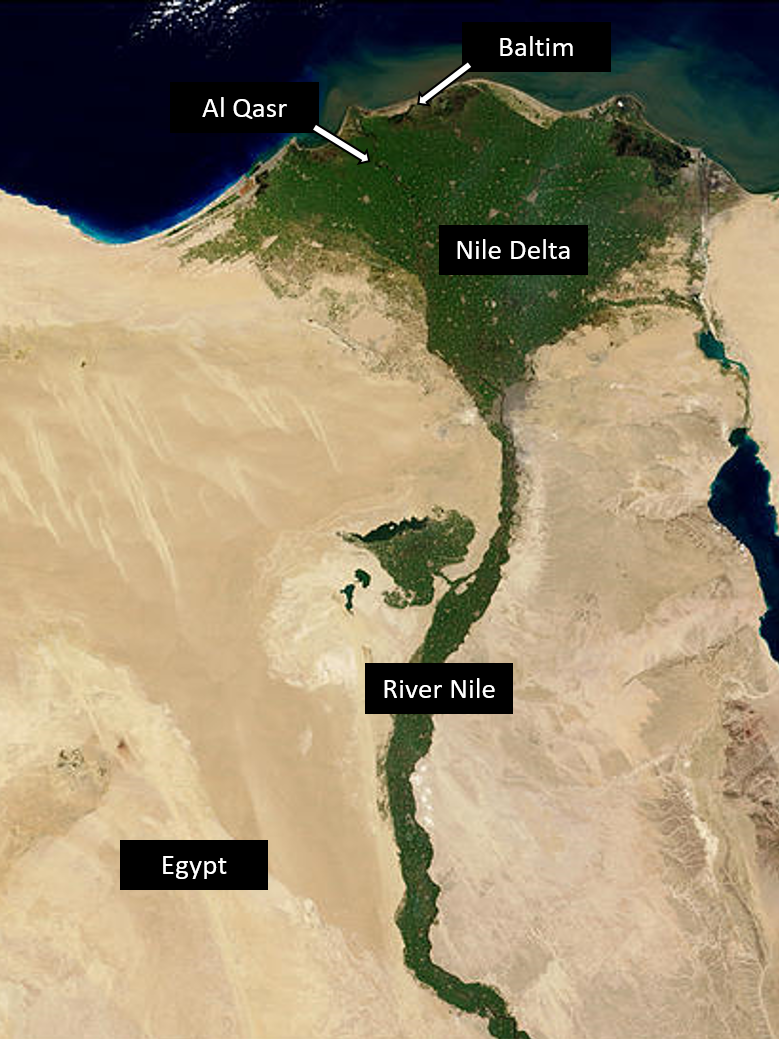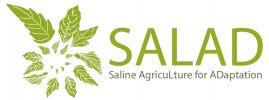General Salinity problems in Egypt
According to the FAO’s reports, progressing salinization is one of the major drivers of soil degradation in Europe as well as Near East and North Africa, exerting increasing pressure on conventional farming based on freshwater resources. Globally, around 400 million hectares of soil are classified as saline. Soil salinization lead to a decrease in soil fertility, reduction in plant growth and productivity and reduced food security, especially in arid and semiarid zones.
Causes of soil salinity
In recent decades, rising soil salinity has been a major problem in the soils of Egypt. Around 30 to 40% of the soils of the Nile delta can be classified as salt-affected. Causes of salinity in Egypt are thought to be a result of seawater intrusion, especially in coastal zone of the Nile Delta, high water table level, accumulation of salt in the upper soil layers due to unsuitable irrigation management and inadequate drainage conditions.

The river Nile is the main source of irrigation water in Egypt. However, in the newly reclaimed areas poor quality ground water or low-quality mixed water (agricultural drainage water and fresh water) is used due to shortage of irrigation water, which mostly causes soil salinization in such areas with time.
Solving the problem
Salinity problems require sustainable management strategies, including; identifying and further developing crop cultivation practices adapted to saline conditions, enhanced drainage systems, using salt-tolerant varieties/crops and exchanging knowledge and transferring practical and adaptive solutions.
Tomatoes as a model crop
At Kafrelsheikh University we will investigate the soil-water-tomato interactions in greenhouse and field experiments. The first experiments in the greenhouse are needed to simulate and assess the impact of different levels of soil salinity on salt-tolerant tomato varieties. Afterwards, the field experiments have the aim to improve tomato productivity in salt affected soils. They will be conducted at two different locations in Egypt (Baltim & Al Qasr) and two seasons (winter & summer).
Read here more in depth background information about the status in Egypt
 saline agriculture
saline agriculture